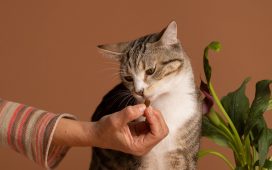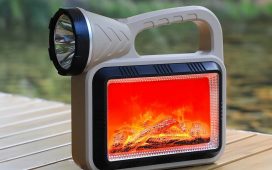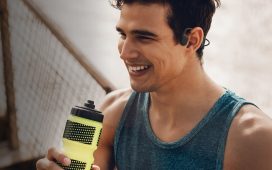NXP and VW announced the first automotive applications of ultra-wideband wireless technology will be coming before the end of 2019
NXP
Back in the 1990s before wifi became ubiquitous in seemingly almost every device we use, there were other challengers for supremacy including ultra-wide-band (UWB). While UWB didn’t achieve mass adoption as the wireless connectivity system of choice, the technology didn’t disappear. Engineers continued working on it and have found new applications where its properties make it particularly well suited and by the end of 2019, it will be in use on a new vehicle from Volkswagen.
In the automotive environment. Unlike bluetooth which runs at 2.4GHz and wifi which operates at 2.4GHz and 5GHz frequencies, UWB operates in the 6-8.5GHz spectrum. As you move up to higher frequencies, signals the signals don’t propagate as far and are less able to penetrate walls and other obstructions, limiting the useful range.
On the other hand, the channels for UWB are 500 MHz wide, vs 20MHz per channel for wifi and just 2MHz per channel for bluetooth. That helps to significantly improve the speed and lower latency, much as it does for millimeter-wave 5G signals which operate in the upper 20MHz spectrum range.
At an event in Hamburg this week chipmaker NXP and Volkswagen demonstrated several of the possible applications of UWB. Since UWB signals travel so quickly, multiple antennas can be used to provide very precise location capability. With UWB antennas in each door and the trunk of a vehicle as well as in the key fob, the fob can be precisely located within about 1 cm accuracy in just a few milliseconds. Signals are sent from each beacon on the vehicle to the fob and the time of flight for the return signal can give a distance. Triangulating each of these enables location, similar to the way that GPS works.
When paired with new more robust algorithms, this enab les secure locking/unlocking of the vehicle that avoids the security problems that have plagued prior keyless entry systems. Those systems used a mix of short and long range radio frequency transmitters in the fob and car. A thief could set up an inexpensive relay system between the two to capture the fob’s response and pass it to the car to enable it to be unlocked and started even when the fob was out of range. Since UWB sends secure messages and relies on multiple antennas for localization this should be prevented.
The UWB system is also much more responsive than bluetooth LE systems now being rolled out for phone as key systems by automakers like Tesla and Ford. Bluetooth LE systems can take up to 2 seconds to respond and lock/unlock a door or trunk, while UWB should be able to do this in about 2-3 milliseconds even when the UWB-equipped key fob is in a pocket or purse within 10 meters of the vehicle.
The same technology could be used to enable automatic garage doors, parking systems, and even payment systems at drive-through lanes, charging stations and gas pumps.
Inside the car, VW showed a system that utilized NXP’s UWB on a child’s car seat. When the seat was installed in the vehicle, it automatically disabled the passenger airbag. This would be a far more robust solution than some of the weight sensors used in passenger seats today. VW also showed a system with a retractable tow hook that automatically emerges when a trailer is detected behind the vehicle. When unhooked, the trailer hitch retracts out of the way as the vehicle moves away from the trailer.
The UWB chip from NXP measures only 5 mm x 5 mm and the associated antenna 3 mm x 2 mm making them small enough to package in phones and even those little tiles you can buy and attach to keys to help you find them when they are lost. UWB
VW will unveil its first production model with UWB capability at the upcoming Frankfurt Motor Show and it goes on sale before the end of the year. While VW is not revealing yet which vehicle this will be, it is likely the new ID3 electric car. Other automakers are likely to launch UWB applications in the not too distant future as well.








